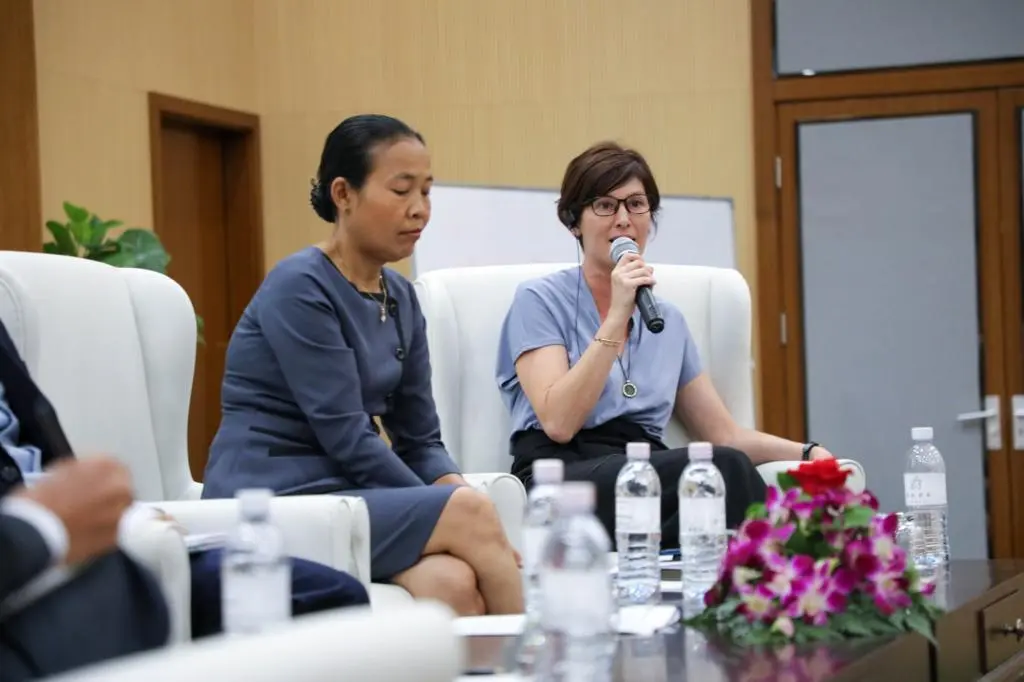
New success story of the month, meet with Alex Wong, Managing Director of DPNV Co. Ltd, the company behind Kaiia Mineral Water.
"Kaiia is absolutely genuine untouched mineral water."
How Kaiia Mineral Water come into being?
The founders of DPNV started with a simple idea – to serve customers and consumers by advocating wellness and wholeness through nature. We began by searching for a pure underground water source, rich in essential minerals. After extensive exploration, we found an untouched water reservoir under Mount Aoral, Cambodia's highest peak. That's where the story of Kaiia Mineral Water truly began.
Is Kaiia real mineral water? What are its benefits?
Kaiia is absolutely genuine untouched mineral water. We carefully filter and treat it while keeping the natural minerals intact. This means it's not just for satisfying thirst but can also provide some important minerals that are good for the body. For example for the kidneys with potassium, bone health with calcium, blood circulation and heart health with magnesium and calcium, constipation with magnesium and bicarbonate, and healthy muscles with magnesium.
Have you already obtained any certifications? Do you work with international experts?
Yes we definitely have. We made sure Kaiia Mineral Water meets all the safety and quality standards required. We were awarded the Cambodian Standard Certification for Kaiia Mineral Water on the 24th January 2023. Subsequently our mineral water plant was awarded the HACCP and GMP Certification from Guardian Independent Certification Ltd. which was registered in London, England on the 2nd March 2023.

With Kaiia, you're developing a company that wants to be a leader in its industry. What are the values you stand for?
DPNV is built on a foundation of core values that encompass CARE with a deep commitment to foster well-being, CARE with a strong dedication to preserve and sustain the environment, and CARE with a robust belief that we are able to elevate Cambodia to the global stage.
Where can I buy Kaiia Mineral Water? Is your water available for Food & Beverages outlets? What is your bottle size?
Kaiia Mineral Water is accessible to everyone. Our authorised distributors have started listing Kaiia in outlets since mid-August 2003. Consumers will be able to find Kaiia Mineral Water soon at participating retail outlets, mini-marts, convenience stores, supermarkets, whole-sellers, restaurants, cafes etc, ensuring that its refreshing and healthful qualities are within an arm’s reach.
Our range of bottle sizes are 350ml, 500ml and 1500ml to cater to varying preferences.

As you enter this market, you have many local and international competitors. What makes Kaiia different?
Firstly there would be no compromise on the quality of Kaiia. Consumers can be assured that they receive the consistent quality in every single bottle. This is not only from the natural mineral water but also its packaging.
Secondly Kaiia has to be made accessible to every single potential consumers. We will work closely with our distributors and outlets to ensure Kaiia is listed in every single outlet that is retailing mineral water.
There it is not only about the exceptional quality of Kaiia but also the manner of how it reaches to the hands of the consumers.
Let's talk about Mount Aoral. Is Kaiia really drawn from the vicinity of Mount Aoral, Cambodia's highest peak? What is the natural environment around the Kaiia production site like?
Indeed, Kaiia Mineral Water is extracted from the foot of Mount Aoral. The natural surroundings around our production site mirror the untouched beauty of nature. We remain dedicated to maintaining an eco-friendly production process that respects and preserves the surrounding environment.

What can we wish for Kaiia Mineral Water and its teams in the coming months?
In the approaching months, we project a comprehensive expansion of Kaiia Mineral Water's outreach, ensuring that its high qualities reach an even wider spectrum of consumers nationwide. Our teams are working together to stick to the values that make our brand special. As part of this initial journey, we are introducing a Consumer Engagement and Promotion Campaign very soon to connect even better with our customers and consumers.


Meet Kaiia during Camfood - Camhotel
From 14th to 16th September 2023, Kaiia Mineral water team will organize free tastings at the CamFood - CamHotel event in Koh Pich, fairtrade which is dedicated to Hospitality and HORECA professionals.
For more information, contact Kaiia team
Mail - info@dpnvgroup.com
Phone - 023 991 234

Over the past weeks, b. Consulting has been working on the strategic support of this 100% Cambodian-owned project.
We assisted Kaiia's team in the important development phases of project management and HR recruitment.
The launch of Kaiia Mineral Water is a source of pride and joy for b. Consulting, we wish long life to the Kaiia Mineral Water teams.
We would like to thank Alex Wong for answering our questions.













